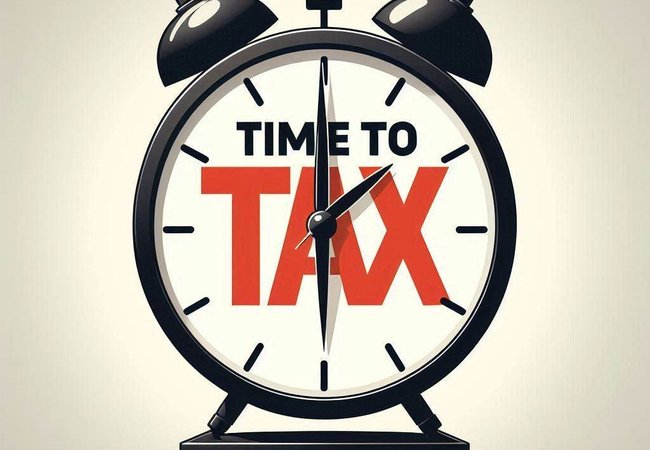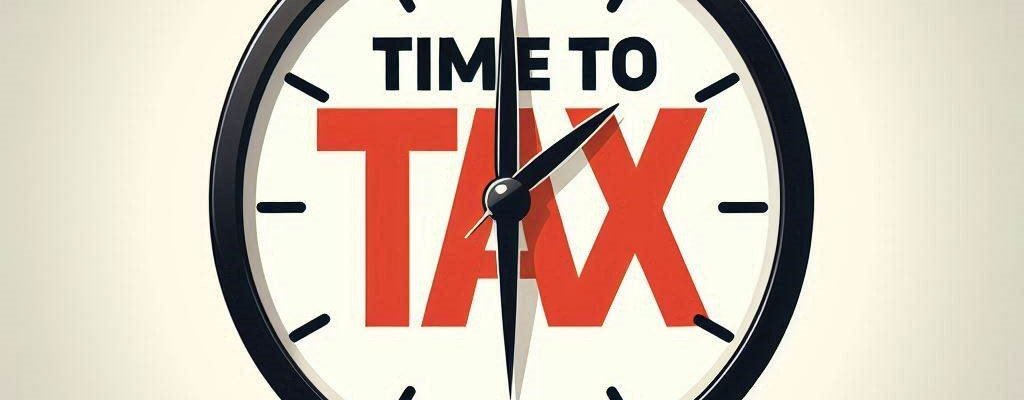That’s right, while the UK Government strips vital support away from those who need it most, the wealthiest are getting even richer.
Globally, the picture is just as stark. Last year, the wealth of the world’s ten richest men grew by nearly $100 million every day. To put that in perspective, even if you saved $1,000 a day, roughly £770, starting from the very beginning of human history - 315,000 years ago - you still wouldn’t have as much money as any one of these billionaires today.
Let that sink in. All the way back to the dawn of humanity, saving hundreds of pounds a day, and you’d still fall short of the wealth held by one of these ten individuals.
These staggering facts demonstrate the inequality crisis we’re facing.
The stark truth? It doesn’t have to be this way.
The money is there
As she launched her Spring Statement, the Chancellor told us: ‘the world has changed’. We’re told there’s no alternative to budget cuts. Yet that’s not true: the money is there. The only thing missing is the political will to go and get it.
As the world’s sixth-largest economy, the UK’s wealth is vast, but it’s overwhelmingly concentrated at the top. Instead of this wealth helping to solve our most pressing issues, it is being hoarded by the few while children go hungry, people with a disability and unpaid carers see their support cut, public services crumble, and climate action remains under-funded.
And despite what you may think, most UK billionaire wealth is unearned; built on cronyism, monopolies or inheritance. It’s the product of a system stacked in favour of the ultra-wealthy.
Instead of making sure this elite pay their fair share, the UK Government is choosing to sustain a tax system full of loopholes, low rates, and special treatment.
The solution is clear: to invest in tackling poverty, improve public services, and address the climate crisis we need a tax system – globally, in the UK, and in Scotland – that makes the wealthiest pay their fair share.
A system that works for the many, not the few
Right now, a nurse or teacher pays a bigger share of their income in tax than a millionaire living off investments. Most tax revenue comes from wages, National Insurance, and VAT - hitting workers hardest - while those making money from wealth and assets contribute proportionally far less.
This system keeps the wealthiest on top while everyone else struggles. But we can change things.
If we taxed wealth fairly, we could raise billions more. For example, a 2% tax on assets over £10 million could generate £24 billion a year. Tax Justice UK estimates that nearly £40 billion more could be raised by other common sense tax reforms. That’s money that could lift families out of poverty at home and around the world, fix our cash-starved public services and narrow inequalities.
This isn't just a pipe dream.
Not only are wealth taxes both feasible and working well in other countries, like Spain, but our polling shows that more than three-quarters of people across the UK, including here in Scotland, say they would rather see the UK Government tax the very richest more than cut public spending.
And guess what? Even millionaires agree. Polling for Patriotic Millionaires UK shows 65% of them back fairer wealth taxes. Yet politicians, it seems, would rather protect the bank balances of the super-rich than the rest of us.
Scotland’s role in the fight
Scotland isn’t immune to the growing divide between the rich and the rest of us, nor are politicians at Holyrood powerless to act.
Just days ago, news broke that, despite some progress, Scotland had missed its interim legal target to reduce child poverty. It wasn’t a surprise; we’d been well warned.
Despite every party in the Scottish Parliament backing the targets, 22% of children are still growing up without enough food, warm homes, or the security they deserve.
It’s a shameful collective failure – but it’s one we can put right.
No-one pretends that fair tax reforms are a panacea. They must sit alongside broader efforts to make our economy fairer and greener, to ensure smarter public spending and to address entrenched gender, racial and wider inequalities head on.
But right now, the sums simply aren’t adding up.
That’s why, last year, Oxfam Scotland and over 50 other organisations launched Tax Justice Scotland. Alongside UK-level action, we’re campaigning for the Scottish Government to use its devolved powers to fairly raise more money to invest in action that benefits us all.
Scotland’s Income Tax system is already slightly fairer than in the rest of the UK, but it’s time to better tax wealth. While some measures may be most effective UK-wide, Scottish Ministers can act. They have promised to ‘explore’ wealth taxation, but detail is scant.
There are obvious places to start. For example, those who choose to travel by pollution-spewing private jets from Scotland’s airports should be taxed for their environmental destruction. This could help fund greater investment in public transport, disproportionately benefiting those on low-incomes while reducing emissions.
Yet, despite the First Minister’s ‘in principle support’ of landing this fair tax, it has yet to get off the ground.
Meanwhile, the broken record on replacing the discredited Council Tax with a fairer tax on property wealth also keeps on playing. With a significant portion of Scotland’s private wealth tied up in property and land, taxing these assets more fairly is a no brainer.
A common-sense choice
Our current tax system – at UK and Scotland levels – is failing us all. It's failing our schools and our hospitals. It’s failing those who need a helping hand, and their basic human rights fulfilled. And, crucially, it’s failing children left in poverty. The sad truth is that these failures are the result of political choices that let the wealthiest get richer while failing to pay their fair share.
Do we really want a society where nurses and teachers pay proportionally more tax than millionaires? Where children go hungry while billionaires see their wealth soar? Where politicians choose to balance the books by cutting social security and aid rather than by ending tax breaks for the wealthiest?
The answer’s obvious.
This article originally appeared in the Sunday Post.


